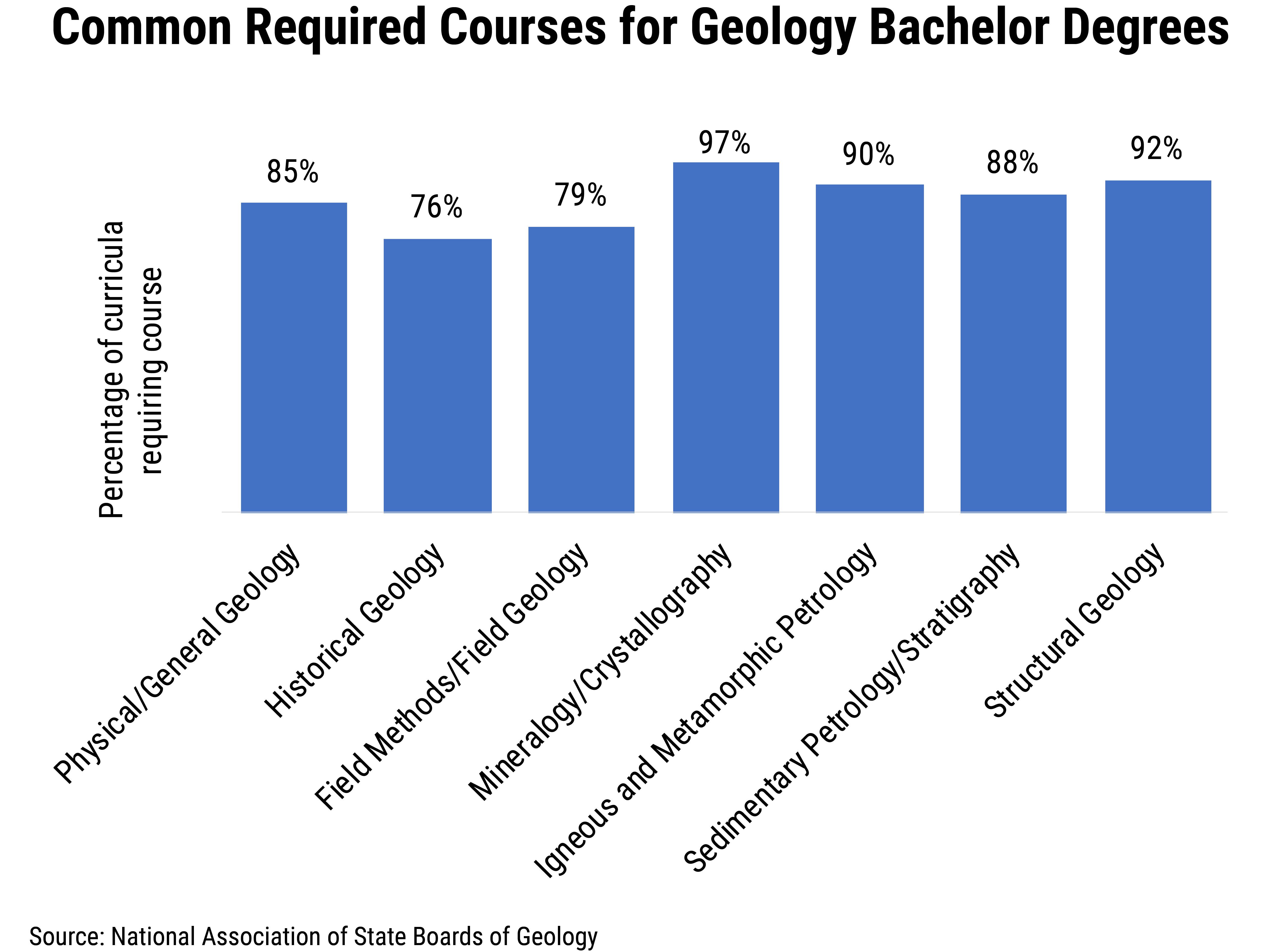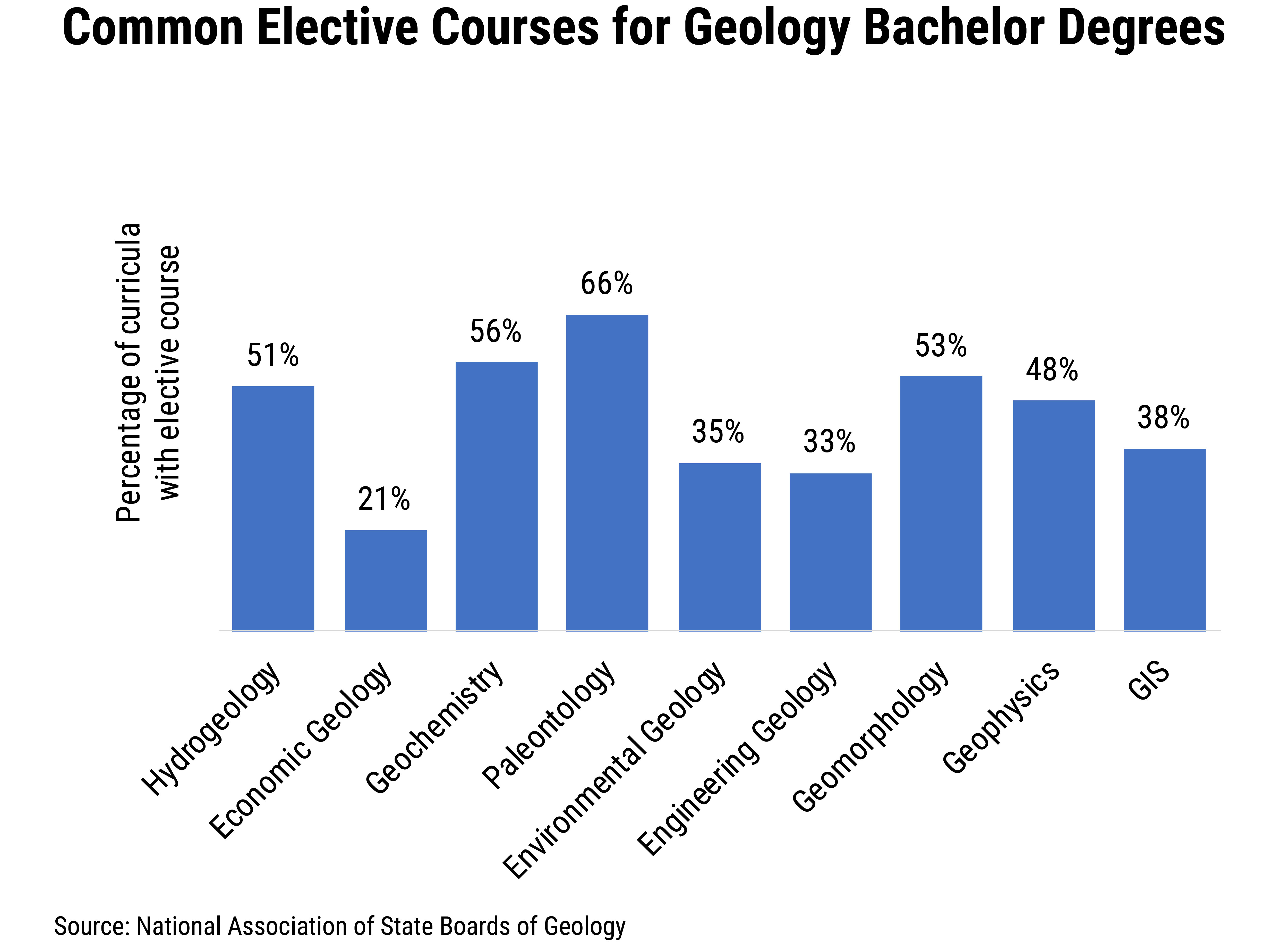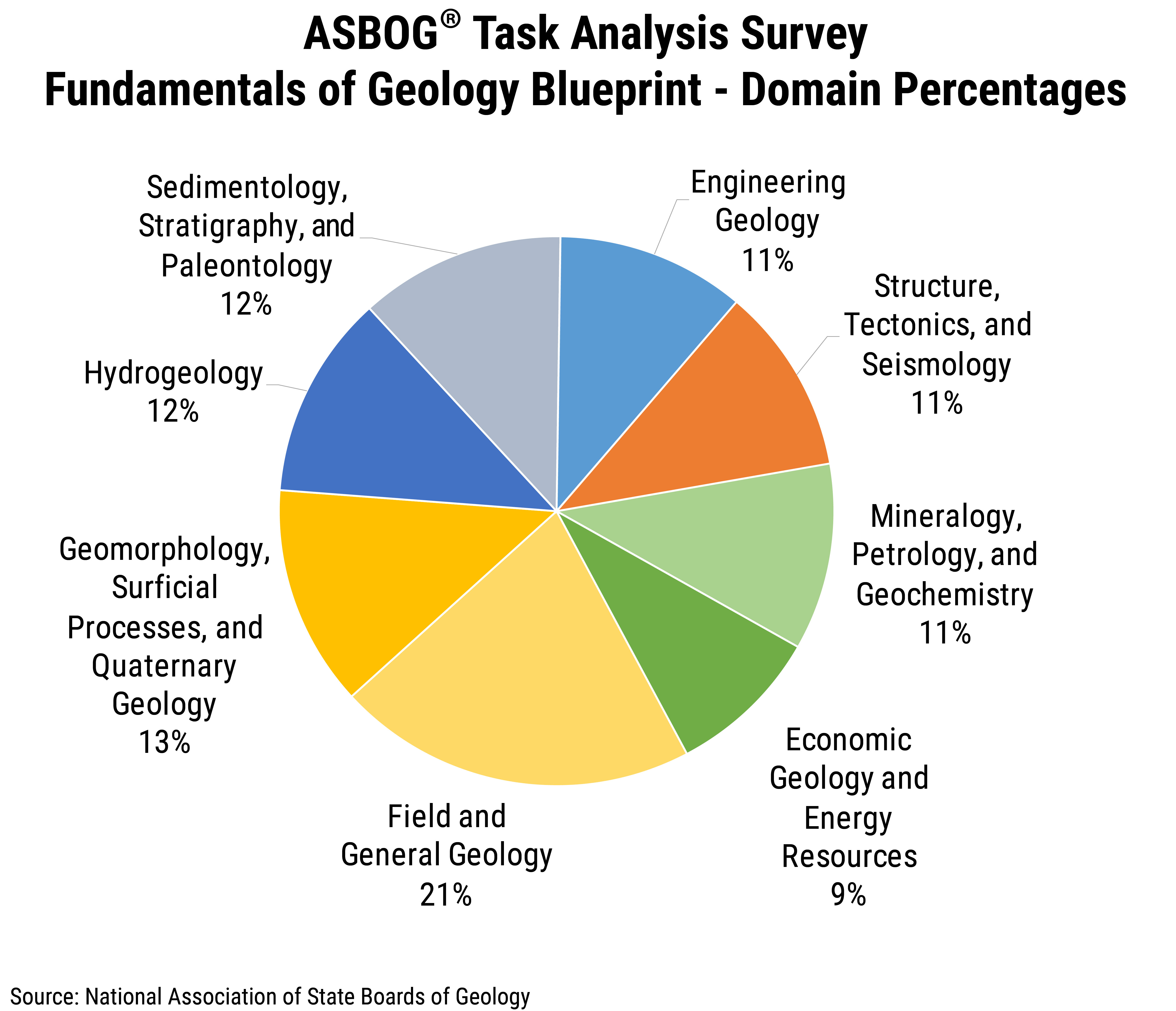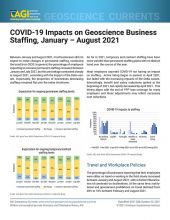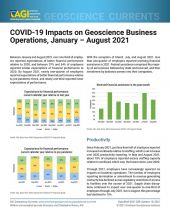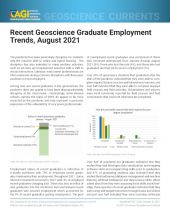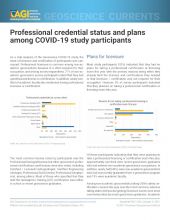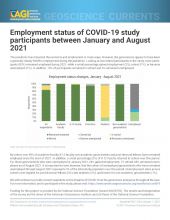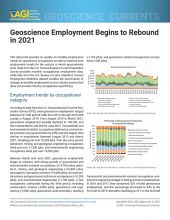Traditional geoscience departments commonly require 60 semester hours of geology and geology-related elective courses to achieve a BA/BS degree. Of the 60 hours, typically half are required courses in geology. Recently, the National Association of State Boards of Geology (ASBOG®) evaluated more than 10% of all geoscience curricula (62 universities) and compiled a list of required and elective courses necessary to achieve a BA/BS degree. The universities selected for the survey were based on the number of students that had taken the ASBOG® Fundamentals of Geology examination, which is an indicator that these departments understand of the need for professional licensure for non-academic, practicing geologists.
Many university geology programs have started to combine and rename courses for a variety of reasons: to provide students more freedom in selection of elective courses, as a result of course compression, and/or to simply add environment or sustainability to the course title to attract more students. For example, some geology programs now offer non-traditional course names such as Earth Materials, Surficial and Near-Surficial Processes, Life and Ecologies of the Past, Environmental Science, Sustainability, Internal Earth Processes, etc. This becomes problematic for graduates who seek licensure, given that these non-traditional course titles are often not considered by the State Licensing Boards to fulfill academic requirements. Furthermore, most State licensing statutes indicate a candidate must have a degree in Geology, Engineering Geology, and Geological Engineering.
With the current diversity in geology courses and degree programs, many students are graduating with degrees in Environmental Geology, Environmental Science, Earth and Atmospheric Science, Earth and Planetary Sciences, and Geosciences to name a few. Are these degrees from a Licensure Qualifying Program? State Licensure Boards report accounts of many disappointed and disgruntled candidates when the young professionals realize they have not received adequate academic training and/or degree in the geosciences to qualify for licensure.
Regardless of course names and evolving degree titles, faculty in geoscience departments are training the future workforce in geoscience-related sectors; consequently, geology departments need to align their curricula with requirements in the workforce so that they can better prepare students to practice geology. Occupational/task surveys, which include practitioners and academicians, are conducted by ASBOG® every 5- to 7-years to define the scope and content of national licensure examinations. Results of the surveys are useful to identify changes in the practice of the profession through time. Given that licensure examinations are based on blueprints developed from these occupational/task survey results, students will most benefit professionally when university faculty align their course content with ASBOG®s blueprint for the Fundamentals of Geology examination. Degree programs that are deemed to be Licensure Qualifying ensure this type of alignment through their course requirements.
Results from the Fundamentals of Geology examination can also be used for curriculum development, curriculum modification, departmental assessment, and accreditation using ASBOG®s Curriculum Performance Assessment Tool (CPAT). The Fundamentals of Geology examination emphasizes knowledge and skills that are typically acquired in an academic setting and lead to a BA/BS degree in geology. From the perspective of a university/college, information from the Fundamentals of Geology examination can be utilized to assess how well the geology faculty are relating an educational background in geology to skill sets needed by students to develop a fruitful career in geology.


